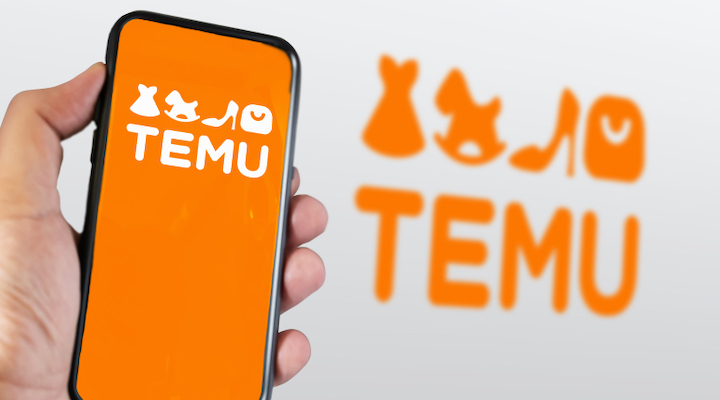Offline channels have also been affected! The U.S. physical discounter market share is being grabbed by Temu
According to data from Earnest Analytics, as of November, Temu held nearly 17% of the market share in the discount store category in the United States.
The rapid rise of Temu not only creates a strong sense of crisis for other e-commerce platforms in the United States, but also makes it difficult for offline discount physical stores that focus on low prices.
According to data from Earnest Analytics, as of November, Temu held nearly 17% of the market share in the discount store category in the United States. The market share of industry leading brand Dollar General is 43%, while other brands such as Dollar Tree have a market share of 28% and Five Below has an 8% market share.
You should know that Temu landed in the United States in September 2022 and achieved such results in just one year, which is truly amazing.
Michael Ashley Schulman, Chief Investment Officer of Running Point Capital Advisors, said, "Temu's advantage lies in its novelty and excitement, and this advantage is difficult for conservative low-end discount retail brands to replicate."
Temu not only sells cheap clothing, but also offers holiday decorations, storage containers, toys, and more similar to a one yuan store. Analysts predict that with its international expansion, the company's revenue this year will exceed $16 billion.
Michael Malof, Marketing Director at Earnest Analytics, said, "Temu's affordable home and consumer goods make it a greater threat to physical discount stores such as single yuan stores than other online markets."
However, some discount physical stores in the United States believe that due to the relatively small scale of online business and different customers, they do not believe that Temu will have an impact on their sales.
Although discount stores such as "one yuan stores" maintain a high stickiness among consumers who purchase essential items such as food, beverages, and detergents, the shift in consumer spending habits has also caused headaches for these discount stores.
Due to the impact of inflation, consumers have become more frugal. Everyone has reduced their spending on non essential goods with higher profit margins and turned to purchasing more consumer goods with lower profit margins. Moreover, in order to maintain low inventory, physical stores such as one yuan stores also need to occasionally reduce product prices. Compared to e-commerce platforms, physical stores are also subject to retail theft, which further erodes the profits of discount stores.
In this situation, industry leader Dollar General has lowered its annual profit forecast three times this year.
According to Earnest Analytics, Dollar General, headquartered in Tennessee, has seen the largest decline in market share compared to its competitors. The company's market share in November this year was 43%, lower than around 57% in January. The share of Dollar Tree decreased from 32% in January this year to 28% in November, a decrease of nearly four percentage points.
Peter Earle, an economist at the American Institute for Economic Research, said that Temu is benefiting from the "shopping fatigue" caused by high prices and inflation. According to the financial report of Temu's parent company Pinduoduo, as of September 30 this year, the company's quarterly revenue increased by 94% compared to the same period last year, reaching 68.84 billion yuan.
Schulman from Running Point said, "Temu's slogan is' shop like a billionaire ', and they have mastered the game and reward mechanisms to make online shopping fun, easy, and cheaper than dollar stores."
The reason why Temu can compete with local discount stores is mainly due to the low price advantage of personal electronic products, clothing, and household goods from China. It is understood that factories and merchants on Temu use a trade exemption policy to directly send goods to Temu shoppers. This trade exemption allows goods under $800 to enter the United States duty-free.

·Original
Disclaimer: The views in this article are from the original Creator and do not represent the views or position of Hawk Insight. The content of the article is for reference, communication and learning only, and does not constitute investment advice. If it involves copyright issues, please contact us for deletion.